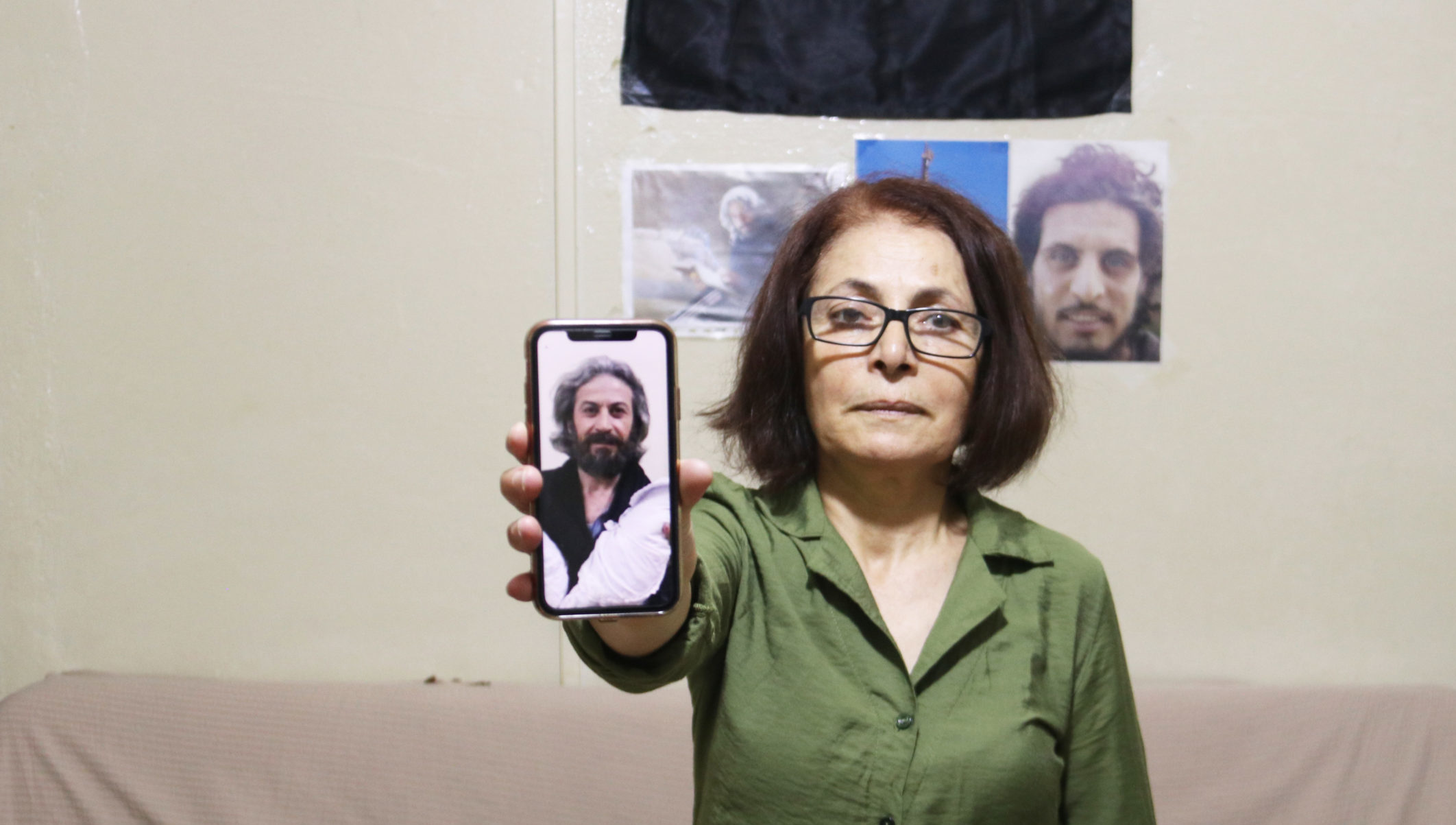Photo: Psychologist Ensaf Nasr holding a picture of her husband, Fouad al-Mohamad, who was kidnapped from a maternity centre in Deir Ezzor in 2014.
In all my years as a Syrian advocate for human rights and justice, never has a letter held such hope and expectation.
After years of searching for answers, 1001 Syrian families have come together to write to the US Government asking for their help to find their sons, daughters, husbands, brothers and sisters who were kidnapped by ISIS when the extremist group had control over a third of Syria.
To date, families have been knocking on the doors of local leaders, scouring the internet, reaching out to former detainees and asking anyone involved in exhuming the more than 24 mass graves in the area if they know anything at all about their loved ones. However, more than two years after the territorial defeat of ISIS, there are no official ways for families to seek information about the kidnapped.
Human rights groups estimate that between 8,000 and 10,000 Syrian civilians remain missing and families continue to wait for any information about their kidnapping or whereabouts. We started information sessions for families in Syria so they could speak to each other, understand current search efforts, and document their relatives’ cases. Many people walked long distances to join the sessions and for many, it was the first time they learnt anything about the possible whereabouts of their loved ones.
Some families have been campaigning for years, calling on the US-led coalition to interview captured ISIS fighters about the whereabouts and fate of the disappeared, and provide funding for the exhumation of mass graves to avoid the potential loss of evidence.
During the fight against ISIS, the U.S. and allied forces entered ISIS facilities, collecting a wide variety of data, including physical documents, computers, and hard drives. This data could provide strong leads in the search for missing people.
A huge responsibility for finding the kidnapped also lies with the Syrian Democratic Forces in the area and the US must use its influence to push the SDF to collect and share evidence about current prisoners and support the interrogations of detained ISIS fighters.
While the US Government has provided some support, it has access to vital evidence and still refuses to share any information it gets from ISIS fighters – information that may be the vital piece of evidence needed to find thousands of missing people. No other country has the same access to crucial documents and the presence on the ground in Syria to launch a concerted investigation.
The letter from families, which has been sent to the State Department and the National Security Council, is being published as an urgent request to the US Government. It asks the administration to open an investigation into the missing and declassify evidence of ISIS detention collected by the U.S. and Kurdish forces.
“We write to you filled with pain, struggling with aching hearts for our sons, daughters, wives, husbands, mothers, and fathers,” the letter says. “We have the right to know the fates of our loved ones and do all we can to search for them every day. However, we cannot do it alone and it is the responsibility of the United States and its allies to lead the search.”
When I talk to families who cannot sleep for fear of what their loved one might be living through or who struggle to live day to day because of the crippling uncertainty they endure, I want to tell them that the world cares, it is doing all it can to try to support those left behind after the fight against ISIS. But our requests for meetings are met with silence and appeals for help denied. We are hoping and expectant that this time, the call of 1001 families will make a difference.
